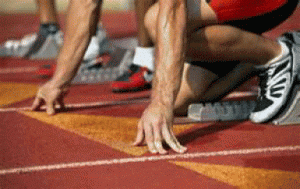Treating Anorexia Athletica
 Athletes and dancers put their bodies through intense training regimens to perform at the peak of their abilities, bodies that the average person occasionally strives to attain.
Athletes and dancers put their bodies through intense training regimens to perform at the peak of their abilities, bodies that the average person occasionally strives to attain.
While exercising is normally a healthy habit, it can turn deadly in the form of anorexia athletica. Just as with other eating disorders, anorexia athletica must be treated as soon as possible to encourage healthy growth and healthy behaviors.
Dangers of Anorexia Athletica
The dangers of anorexia athletica closely mirror those of over exercising. Women suffering from anorexia athletica may experience the phenomenon known as “The Female Athlete Triad,” the combination of disordered eating, amenorrhea, and osteoporosis. The Triad may cause shin splints and stress fractures throughout the woman’s body.
Both men and women suffering from anorexia athletica are at an increased risk of heart, brain, liver, and kidney damage. Relationships with friends and family fray as they pull away from social activities in order to exercise. It is imperative that anyone suffering from anorexia athletica seeks help to prevent further damage to their lives.
Residential Programs
Residential treatment centers work with those suffering from eating disorders to relearn healthy eating and exercise habits. Members of the center will stay with the program for a pre-specified amount of time. They will eat their meals there, attend counseling and group therapy sessions, and begin to reclaim their lives before the disorder. It’s important to find a residential center that specializes in anorexia athletica. The staff should be familiar with this particular disorder and the methods of treatment.
Out-Patient Therapy
Not all people suffering from anorexia athletica will need to attend a residential program, and many people who have gone through the residential program will eventually begin attending out-patient therapy sessions. These sessions can include individual and group therapy as well as family therapy sessions. Cognitive therapy will focus on changing negative thought processes to positive ones. Psychotherapy will address all thoughts, feelings, and behaviors associated with the disorder.
Nutrition and Exercise Counseling
Proper nutrition and exercise must be reintroduced to the person with anorexia athletica. Relearning healthy food behaviors with the help of a nutritionist will allow the patient to feel more in control over his or her diet. Relearning healthy exercise behaviors allows the patient to re-engage in an ordinarily beneficial activity.
Medication
Oftentimes eating disorders are accompanied by mental disorders, and anorexia athletica is no exception. Anti-depressants or anti-anxiety medications may be prescribed to alleviate underlying symptoms of stress and depression. While these medications won’t treat the eating disorder directly, they will help with the road to recovery.
Source: Livestrong.com
 Eating Disorder Self Test. Take the EAT-26 self test to see if you might have eating disorder symptoms that might require professional evaluation. All answers are confidential.
Eating Disorder Self Test. Take the EAT-26 self test to see if you might have eating disorder symptoms that might require professional evaluation. All answers are confidential.